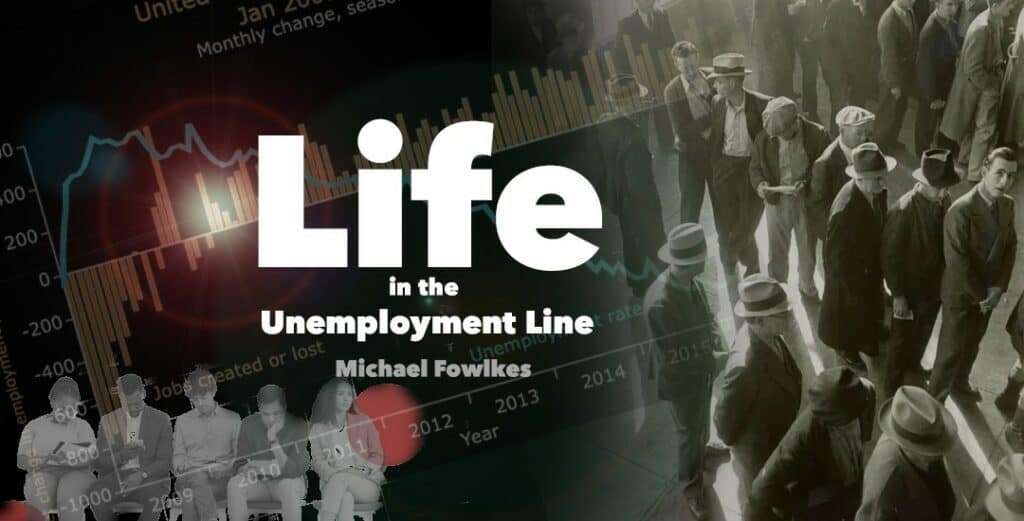Michael Fowlkes
MDI Contributor
EDITOR’S NOTE: Veteran MDI member Michael Fowlkes of the San Diego Men’s Division has recently taken on a job search, after 20 years at a company that has been downsizing over the past two years. Endeavoring to offer insight into the process of job hunting, Fowlkes – who also spent six years in an employment and training department building career centers – answers some pointed questions about his recent time in the proverbial “unemployment line.”
What is it like to be job hunting once more in today’s market?
After 20 years UnitedHealthcare eliminated my position. So for the first time in two decades, I’m having to do job search, which is a shock. It’s been a long time. I guess the cosmic message was: it was time to move on from United. OK fine. And I’m good with that because I’ll go find another job that pays more money, that’s more fun, with better benefits, stock options. I’ll just move on and go kick ass somewhere else.
Any concerns?
I don’t know that I really have any concerns. I think the big thing is just getting over the fact that I have to do job search, which I never liked, within a process that sucks.
What brings you confidence moving forward?
By getting rid of all the negative juju of having to do a job search. I need to get clean with that, and then just hold a high intention to find the next great thing.
What tips can you give men out there on the job hunt?
There’s a book called “Knock Em Dead” by Martin Yate, which basically details all of the different interview questions that employers will ask you; check it out.
Update your LinkedIn profile.
Get clear about what you want to do and then make your list of people whom you know and start networking. Because 80 to 90 percent of most jobs are found by networking.
Get the effective tool of a ChatGPT account, because it makes it easier to develop cover letters and gather information.
When you do your job search, make a target list of the different companies that you may want to research.
Hold a high Intention and have a great attitude. Monitor your thoughts and try to stay clean and positive.
Make sure you update your resume and really go through all the things you did at your last job, accomplishments, skills. Maybe even go through a whole skill’s inventory, because there may be skills that you have that you don’t realize you have or have not yet identified. It’s a really good process to do a skills inventory list if you haven’t done so in awhile.
What works?
Get on job boards, develop your list of contacts with whom you can network and then get to work by creating a routine. Know what you’re going to do each day. For the time being that is your job. Also, if you’ve been working for a long time, then if you can afford to do it, take some time off, take a break, relax. Get stress-free and then get ready to re-enter the job market.
What doesn’t work?
What doesn’t work is doing nothing or sitting around bullshitting, hoping and taking no action and then being pissed off about not having a job. What doesn’t work is making excuses.
How is it different from the past days of job hunting?
The process is highly automated and online, unlike the old days. There is a lot more technology. It puts more of an emphasis on who you know because employers or recruiters are getting hundreds of thousands of job applications or resumes that they have to trudge through. And they’re probably using some kind of automation like AI to look for candidates. The process is even more impersonal than it used to be. And knowing somebody that knows someone to circumvent the process gives you a decided advantage. Imagine an employer looking for someone. They have 250 resumes to go through and it would be easier to say,. “Hey, do you have a friend who might be really good at this job? Can you give him a call?”
Any pep talk for the men out there?
There’s a job out there for you, and you need to find that job, and that job needs to find you.
You need to believe in yourself and be confident.
I think the other thing that really helps that process is going back and reviewing all past projects, milestones and tasks that you’ve accomplished in the previous jobs as you build your resume.
Also start to identify job openings. In identifying skills that you’ve developed, this will help build your confidence.
Lastly, have high expectations and have fun with the process.
